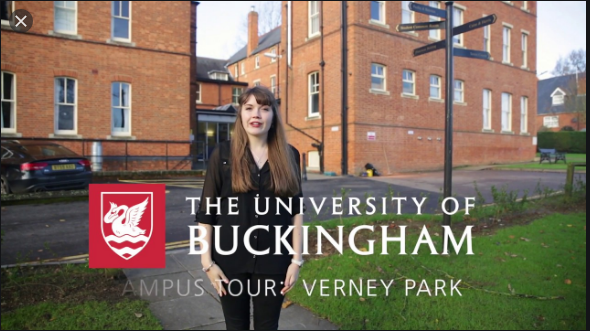MA Research Biography
The cutting-edge Taught MA in Biography was founded in 1996, remains unique to Buckingham and is consistently rated ‘excellent’ by external examiners and inspectors. Since then, in response to student demand, the available options have been extended to include our MA by Research. Study can be on either a full-time or a part-time basis.
Course structure
For their first year of study students attend the same weekly seminars as students taking the Taught MA in Biography. These provide the critical awareness of the subject which is an essential prerequisite for dissertation work and they are one of the most distinctive and valuable elements of the MA. They take place as follows:
- Autobiography (September to December)
- Special Paper in Biography (January to June)
- Research Methods (January to June)
The modules on Biography and Autobiography are designed to combine the study of classic biographies and memoirs with contemporary writing. In addition, the Research Methods module provides an invaluable and innovative training, especially devised for biographers.
Guest seminars on the course are led by leading biographers, critics, publishers and agents. Teachers and speakers on the course have included Andrew Motion, Kathryn Hughes, Frances Wilson, Frances Spalding, Jeremy Lewis, Rupert Shortt, Caroline Dawnay, Andrew Lownie and Miranda Seymour.
Research students are expected to produce, as a valuable preliminary to their own research project, written coursework for the Research Methods module (an annotated bibliography and a short biography, with supporting material, produced according to the Oxford Dictionary of National Biography format), and one other piece of written work, but the full amount of termly written work required for the taught course is not compulsory. During the early part of the course, research students refine their research proposal under the individual supervision of the course director for eventual discussion with the Research Officer. Once the research proposal has been accepted students concentrate on individual research and the preparation of a dissertation, under the supervision of the course director.
Intakes
- Jan
- Sep
Application Processing Time in Days: 15
Minimum English Language Requirements
| English Level Description | IELTS (1.0 -9.0) | TOEFL IBT (0-120) | TOEFL CBT (0-300) | PTE (10-90) | |
|---|---|---|---|---|---|
| Expert | 9 | 120 | 297-300 | 86-90 | |
| Very Good | 8.5 | 115-119 | 280-293 | 83-86 | |
| Very Good | 8 | 110-114 | 270-280 | 79-83 | |
| Good | 7.5 | 102-109 | 253-267 | 73-79 | |
| Good | 7 | 94-101 | 240-253 | 65-73 | |
| Competent | 6.5 | 79-93 | 213-233 | 58-65 | |
| Competent | 6 | 60-78 | 170-210 | 50-58 | |
| Modest | 5.5 | 46-59 | 133-210 | 43-50 | |
| Modest | 5 | 35-45 | 107-133 | 36-43 | |
| Limited | 4 | 32-34 | 97-103 | 30-36 | |
| Extremely Limited | < 4 | < 31 | < 93 | < 30 |
Job Opportunity Potential
Our graduates have gone on to further study at most of the world’s leading universities, including Harvard, London, Oxford and Cambridge and secured jobs in senior positions around the world. Among our alumni we have a graduate who became the head of his country’s civil service and one who became a leading Formula One motor-racing driver. Another secured a position as the Minister of Sabah and one female law graduate became the first British lawyer to become a French Advocate.
PSW Opportunity
2 years of PSW available after completion of Degree program
Admission Requirement / Eligibility Criteria
The minimum entry level required for this course is as follows:
- a first or second-class honours degree from a recognised university or,
- a recognised professional qualification with relevant work experience
Postgraduate entry requirements
In order to study at postgraduate level (Master’s degree), you will normally need to have attained:
- A Bachelor’s degree from a recognised higher education institution, with Second Class/Division (50-64%) equivalent to a British Bachelor’s (Honours) degree, with a minimum of a 2:2, depending on school of study.
For More Information Please Connect Our PSA Counselor
- Course Type: Full Time
- Course Level: Masters/PG Degree
- Duration: 01 Year
-
Total Tuition Fee:
15150 GBP
Annual Cost of Living: 9207 GBP
Application Fee: N/A
Similar Programs
- MA United Nations and Diplomatic Studies at University of Buckingham
- MA 20th-Century British History by Research at University of Buckingham
- MA Tudor History by Research at University of Buckingham
- MA History of Art: Renaissance to Modernism by Research at University of Buckingham
- MA The English Country House 1485-1945 by Research at University of Buckingham
- MA The Art Market and the History of Collecting by Research at University of Buckingham

